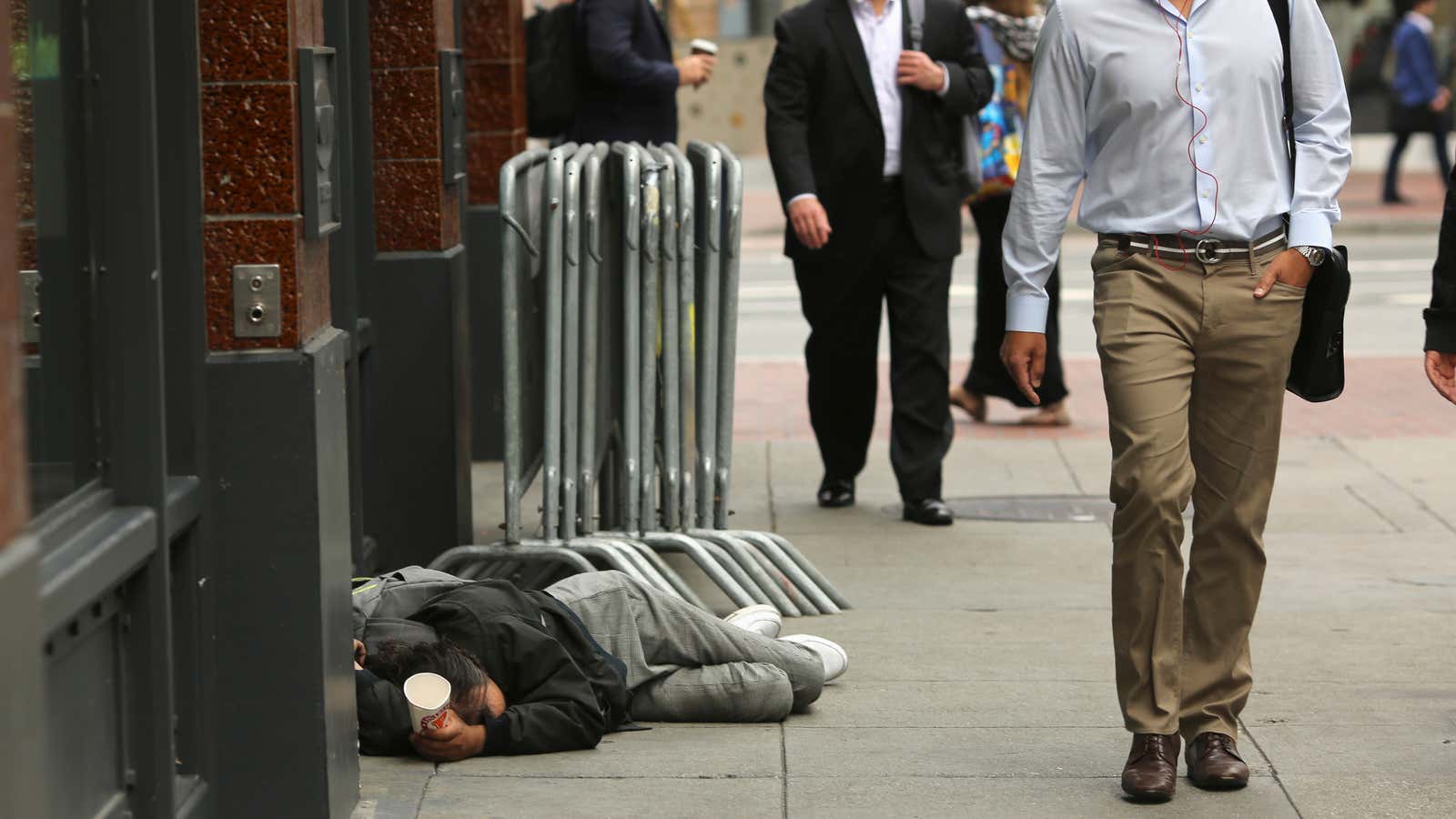I am writing today to voice my concern and outrage over the increasing tech bro problem, conspicuously concentrated in the city of San Francisco. The curious case of Tech bro v. Homelessness has been presented before me for comment.
Many of you have petitioned the Council for Human Decency your concerns regarding the callousness of one startup entrepreneur, Justin Keller. As penance for sins I must no doubt have committed in a past life, I found this case dumped on my desk alongside the even more absurd case of Marc Andreessen v. Indian Emancipation and the morally bankrupt case of Yelp v. Talia Jane. Yes indeed, this week has been a low watermark for Human Decency in San Francisco. But I digress.
In publishing his open letter to Mayor Ed Lee and Police Chief Greg Suhr on Feb. 15, Keller is guilty of betraying an incredible sense of bourgeois entitlement, reckless irony, and sloppy philosophy. “I shouldn’t have to see the pain, struggle, and despair of homeless people to and from my way to work every day,” he writes. But I urge, nevertheless, that we stay the blade.
You are not wrong to imagine Keller’s morality long rusted, encrusted in the residue of so long having volunteered himself a willing cog in a fetishized industry. But here at the Council, we husband our resources strategically. It bears recognition that Keller is merely a foot soldier on the tech front of the class war, a prole with aspirations so banal, history has already forgotten him. As a startup founder, statistics and conventional wisdom would suggest Keller will burn out–if not this year, then the next. Your anger is my anger is our anger, but from our vantage, Keller is but Silicon Valley cannon fodder.
Still, the irony of the incident warrants reflection. Perhaps the greatest tragedy of Tech bro v. Homelessness is that Keller sincerely believes himself entitled to comfort and security from the city—not because he believes these protections should be guaranteed to everyone as rights, but because of all the money he hopes to earn as a tech startup founder. “The wealthy working people have earned their right to live in the city,” he declares, despite the fact that he is unlikely to have yet earned anything at all. For Keller, having a big enough dream is fair currency in San Francisco, a “magic place” where capitalism never fails and inequality has no consequences.
And because Keller believes his dream is as good as gold, he resents being made to sit near people whose dreams, I guess, weren’t golden enough. “Every day, on my way to, and from work, I see people sprawled across the sidewalk, tent cities, human feces, and the faces of addiction,” he complains. And really, who would want to be reminded of market failure on his way to work at a redundant tech startup in an industry characterized by everyday failure and bankruptcy?
I get it: Keller is legion. The ergonomic chair containing his improbable delusion will just as soon cradle the next, in this insufferable game of failure roulette. And yet, I tell you now that not one of our children will ever whisper the names of cloud server salesmen with reverence. This madness is no doubt coming to its end.
Entrepreneurs are not known for their eloquence, so let me be clear: This letter is from the future damned. Keller speaks for a threatened privilege, the voice of besieged ignorance. He reports with fear that the rich can no longer step blithely over the bodies of the dispossessed. He sees revolution in the face of every indignant stranger.
Comrades, the enemy now nakedly begs for shelter from a coming storm. We best bring it.
